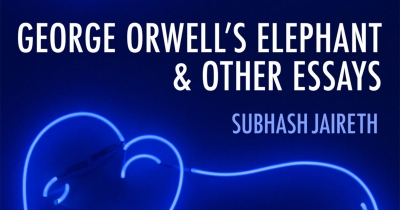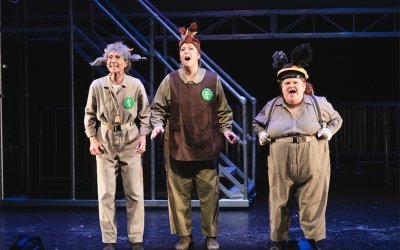George Orwell
The birds are twittering and tweeting (all puns intended) on Manor Farm. Industrial scaffolding leads up to a platform that cuts the minimalist set in two. The same metal barriers that are used to corral the crowds waiting for Covid-19 vaccinations criss-cross the floor of the stage. ‘Breaking News’ flashes across the cinema-sized screen that looms over what will soon be renamed ‘Animal Farm’.
... (read more)George Orwell, born in 1903, was the child of a British Empire civil service family with long Burmese connections, which belonged, as he put it with characteristic precision and drollery, to the lower upper middle class. By the time he went to fight against fascism in Spain in 1936, he had already quit his job in the Burmese colonial police, attempted to drop out of the English class system, and become a writer and a socialist of a notably independent, indeed idiosyncratic, kind.
... (read more)


